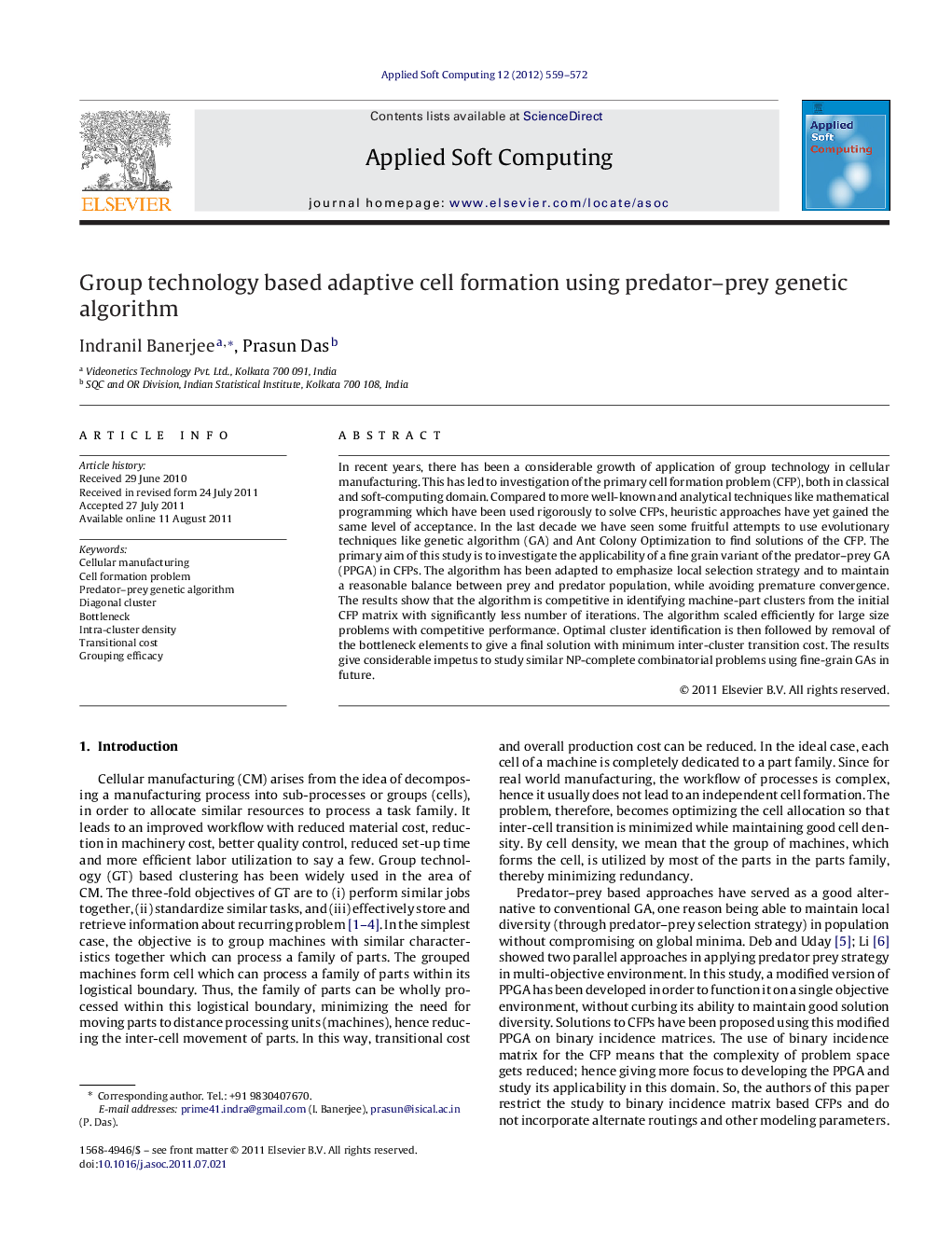| Article ID | Journal | Published Year | Pages | File Type |
|---|---|---|---|---|
| 496204 | Applied Soft Computing | 2012 | 14 Pages |
In recent years, there has been a considerable growth of application of group technology in cellular manufacturing. This has led to investigation of the primary cell formation problem (CFP), both in classical and soft-computing domain. Compared to more well-known and analytical techniques like mathematical programming which have been used rigorously to solve CFPs, heuristic approaches have yet gained the same level of acceptance. In the last decade we have seen some fruitful attempts to use evolutionary techniques like genetic algorithm (GA) and Ant Colony Optimization to find solutions of the CFP. The primary aim of this study is to investigate the applicability of a fine grain variant of the predator–prey GA (PPGA) in CFPs. The algorithm has been adapted to emphasize local selection strategy and to maintain a reasonable balance between prey and predator population, while avoiding premature convergence. The results show that the algorithm is competitive in identifying machine-part clusters from the initial CFP matrix with significantly less number of iterations. The algorithm scaled efficiently for large size problems with competitive performance. Optimal cluster identification is then followed by removal of the bottleneck elements to give a final solution with minimum inter-cluster transition cost. The results give considerable impetus to study similar NP-complete combinatorial problems using fine-grain GAs in future.
Graphical abstractFigure optionsDownload full-size imageDownload as PowerPoint slideHighlights► Application of a new predator-prey evolutionary strategy to solve CFPs. ► A novel efficacy measure based on inter and intra cluster transition cost in CFPs. ► The proposed PPGA with adaptive selection scheme is both scalable and efficient. ► Good convergence in solving large CFPs previously not tested using GAs.
